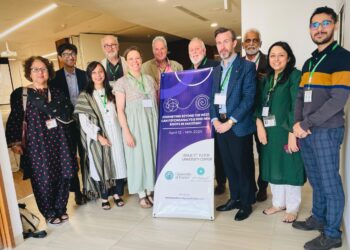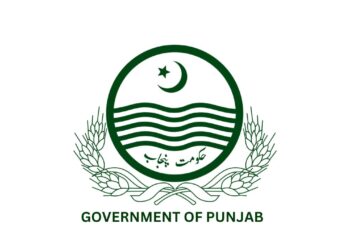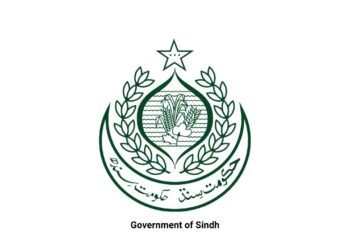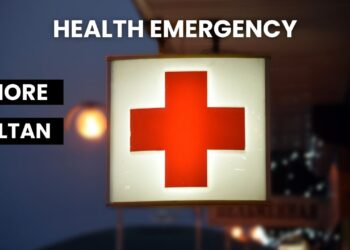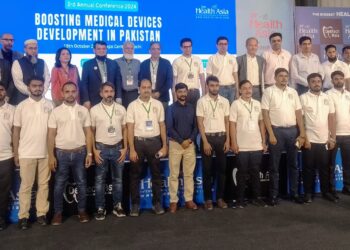UNICEF in a recent report says that the COVID-19 pandemic is unravelling decades of health, education and other advances for children across South Asia, and governments must take urgent action to prevent millions of families from slipping back into poverty.
With the pandemic expanding rapidly across a region that contains a quarter of the world’s population, Lives Upended describes the disastrous immediate and longer-term consequences that the virus and the measures to curb it have had on 600 million children and the services they depend on.
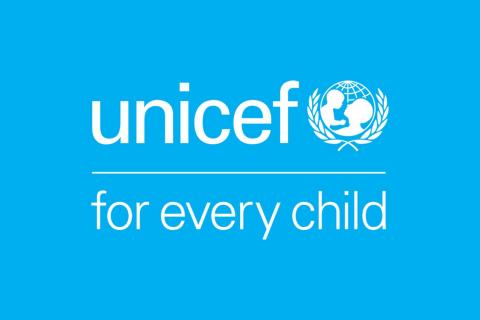
“The side-effects of the pandemic across South Asia, including the lockdown and other measures, have been damaging for children in numerous ways,” said Jean Gough, UNICEF Regional Director for South Asia. “But the longer-term impact of the economic crisis on children will be on a different scale entirely. Without urgent action now, COVID-19 could destroy the hopes and futures of an entire generation.”
Read more: Ehsaas Program launches Ehsaas Langar, Panagah App & more.
In Pakistan, which is amongst the top twenty countries impacted by COVID-19, the already burdened public health system faces enormous challenge to curb the spread of the virus as well as continue the provision of access to essential health and nutrition services. Educational facilities are closed, with millions of children not going to school, putting more children at risk of dropping out of schools permanently and joining the nearly 23 million who are already out-of-school.
The outbreak has caused further shrinkage in resources for service delivery in education and health, where public sector investments is already below the levels needed – 2.3 per cent and 0.76 per cent of the GPD respectively.
“The COVID-19 pandemic is a health crisis that will become a child right crisis if we don’t act now,” said Aida Girma, UNICEF Representative in Pakistan. Schools are closed, children have missed on their immunization and more families are being pushed into poverty, with devastating effects on the health and well-being of children and adolescents. We must safeguard the health and survival the most vulnerable by ensuring the continuity of critical services and increasing investments in education, health and child-sensitive social protection schemes.”
In April 2020, two-third of children in Pakistan missed on routine immunization as compared to January, increasing the risk of vaccine-preventable diseases outbreaks, which could lead to an increase in child mortality. Almost 40 million under five-year-old children missed out on their polio immunization as the nationwide April campaign had to be postponed.
According to the Lancet, wasting will be responsible for 18% to 23% excess mortality among children under 5 in contexts where already fragile health systems are further stretched by the COVID-19 response. This situation is of particular concern in Pakistan, where 40% of children were already stunted before and 2.5 million already suffered from severe wasting, with a prevalence of wasting already beyond the emergency threshold.
Since the onset of COVID-19, UNICEF has been working alongside the Government of Pakistan, provincial governments and other partnersto mitigate the impact of the pandemic. Besides supporting a comprehensive public awareness campaign on symptoms and precautions against coronavirus, UNICEF is assisting in theprocurement and distribution of Personal Protective Equipment for frontline health workers, installation of handwashing stations at public points, provision of remote learning and sustaining the essential health and nutrition services in the country.
Focusing on South Asia, the new Reporthighlights that the immunization, nutrition and other vital health services in the region have been severely disrupted, potentially threatening the lives of up to 459,000 children and mothers across South Asia over the next six months.
With schools closed, more than 430 million children in the region have had to rely on remote learning which have only partially filled the gap; many households – especially in rural areas – have no electricity, let alone internet access. There are concerns that some disadvantaged students may join the nearly 32 million children who were already out of school before COVID-19 struck.
The report also notes that life-saving vaccination campaigns against measles, polio and other diseases must resume, as should work to help the estimated 7.7 million children who suffer from severe wasting — more than half the global total. Schools should reopen as soon as possible provided adequate handwashing and other physical distancing precautions are in place.
In order to mitigate the impact of COVID-19 on poorer families, the report says that Governments should immediately direct more resources towards social protection schemes, including emergency universal child benefits and school feeding programmes.
Notes to Editors:
The report highlights the importance of tackling critical child-related issues exposed by COVID-19 including:
- Providing community health workers and other social services staff with personal protective equipment (PPE) to enable them to do their work safely.
- Scaling up of low-tech home learning solutions (for example, using a combination of paper and mobile phone-based materials) especially for vulnerable groups such as girls, children living in remote areas and urban slums, and children with disabilities.
- Addressing the widescale need for water supply, toilets and hygiene services in schools and health care facilities.
- Working with religious leaders and other partners to address the myths and hate-speech that the pandemic has given rise to.
By early June, within its ongoing COVID-19 response across the region, UNICEF and its governmental and other partners had:
- Reached 356,820 people including children with community-based mental health and psychosocial support.
- Engaged an estimated 100 million people on issues related to COVID-19 through risk communication and community engagement.
- Reached 10.6 million people with critical WASH services and supplies as part of infection prevention control.
- Trained 1.4 million health care providers to detect, refer and manage COVID-19 cases in children, as well as pregnant and breastfeeding women.
- Reached 7.3 million women and children with essential health care services including immunization, prenatal and postnatal care, HIV care and gender-based violence services in UNICEF supported facilities.
Download photos and B-Roll from here.
Read more: WHO warns the world is in a new and dangerous phase of COVID-19.
